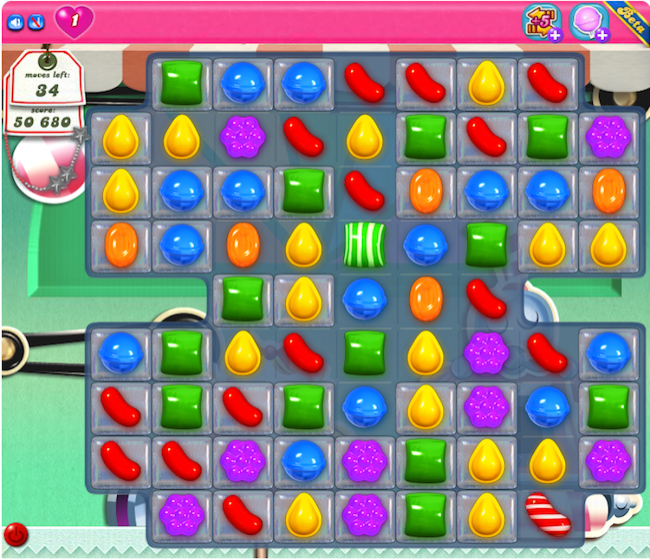Is Candy Crush Turning Your Kid Into A Gambler?

The rules of "Candy Crush Saga" are pretty easy: match the candies on the game board to make them disappear, and move up to the next level.
It’s simple enough, but for children playing the game, the long-term outcome could be more complicated. A professor from the United Kingdom says that games played on social networks can be addicting and possibly lead to bad habits later in life.
“It’s a bit of the old drug-dealing analogy of giving a bit for free and hooking them in,” Professor Mark Griffiths, director of the International Gaming Research Unit at Nottingham Trent University, told the Times Educational Supplement.
“Games like Candy Crush have a 'moreishness' quality, a bit like chocolate. You say you’ll just have one chunk and you end up having a whole lot,” he said
In an earlier report published in the journal Education and Health, he noted that there was a “striking” similarity between social gamers -- those play games on Facebook -- and people using a slot machine.
“I and some of my colleagues have argued previously that many social games played on social networking sites have gambling-like elements – even if no money is involved,” he wrote in the report.
“On first look, playing games like Farmville, may not seem to have much connection to activities like gambling but the psychology behind such activities are very similar,” he wrote.
To be sure, King focuses their marketing at a very different audience. They have publicly stated that their target demographic is women between the ages of 35-50, and most of their players are over the age of 24 years old. Many players even complete the games without making any payments at all.
Candy Crush is already the most-popular game on Facebook (NASDAQ:FB). Although King.com Ltd., the company that owns Candy Crush, doesn't release financial details, Think Gaming estimates that the game attracts more than six million users every day and generates daily revenue of nearly $946,788.
© Copyright IBTimes 2024. All rights reserved.






















